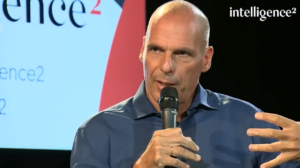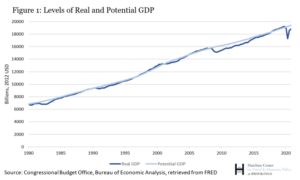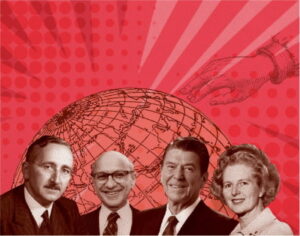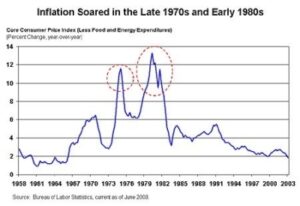This post is part of a series about a discussion (framed as a debate) between Yanis Yaroufakis and Gillian Tett on the subject of saving capitalism. If you found this post via an Internet search, it probably makes sense to start with the first post in the series, the link to which can be found above, and here.
Question for Yanis: The death throes of capitalism have been announced before, why is “saving capitalism” to be taken serious this time?
Yanis
First, in August of 2020, as a result of the UK economy shrinking due to Covid lockdowns, analysts expected the UK GDP to fall 12% or so.
When it was announced that UK GDP actually fell 20%, the stock market went up. This disconnect between the GDP shrinking, and the stock market rising had never before been seen.
Why did it happen? Because the institutional investors EXPECTED a cash infusion from the Bank of England. This illustrates how financial markets have decoupled from real capitalism.
In 2008 our generation experienced a global financial crash similar to 1929, but whereas in 1929 banks were permitted to fail, in 2008 the Federal Reserve injected massive amounts of money to keep them afloat, an effort that was succeeded in its goal.
This was copied by the European Central Bank in 2012, and capitalism is now hooked on central bank money.
Why did Jeff Bezos become so much richer during the pandemic? Not because of the profits of Amazon, but because the central bank cash helped Amazon buy back their own shares, which elevated the stock price which he owns a lot of.
How did Amazon get the money to buy back their own shares? From banks that directly received central bank money.
Amazon was offered very cheap loans. This was not isolated to Amazon.
Big banking made these very cheap loans to big businesses, who are already sitting on mountains of cash but aren’t going to turn down cheap money.
That cheap money was used to buy back their own shares.
This is splitting capitalism into two, where one part is propped up by central bank money.
What we have today is further from Adam Smith’s ideas about capitalism due to the advent of platforms, such as Amazon.
When you enter Amazon, everything that is bought and sold is controlled by one company, and as such you leave capitalism, and what Adam Smith said simply isn’t relevant anymore.
Gillian
She repeats back that he’s saying that Adam Smith is not relevant because the financial markets don’t tie into the real economy and because of platform monopolies on technology.
Yanis
And additionally, the companies that are not platform companies are being taken over by private equity companies, loaded with debt that is financialized, split up, stripped of assets, and what Adam Smith would consider to be the capitalist sector is squeezed to death, until all that is left, is central banks, financial markets, and the platforms.
Some interesting back and forth
Gillian asked if what Yanis had said is that Adam Smith is not relevant because the financial markets today do not tie into the real economy and because of platform monopolies on technology.
Yanis said yes, and he repeats that companies that are not platform companies are being squeezed to death by private equity deals.
Those companies are being taken over and loaded with private debt which is financialized.
The companies are then split up and asset-stripped, so what Adam Smith would consider to be the “capitalist sector” is squeezed out, until all you have left are central banks, financial markets, and the platforms.
Gillian and Yanis both agree that competition is a good thing in an economy and that prices are useful.
However, they disagreed on the idea of the importance of profit, although, they were really talking about two different things.
Yanis stated that in his book “Another Now: Dispatches from an Alternative Present” there is an Anthropologist (named Iris) which he said he modelled after Gillian who describes the “other now” in his “his utopia” (he chuckled as he said “his utopia”) and states that markets are essential and are the only thing that stops authoritarianism and Soviet-style gulags from descending upon us.
However, when you develop share markets that are being turbocharged through central bank money and you have the financialization that he explains in his book, then competition dies.



